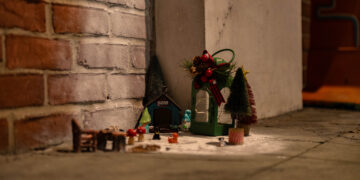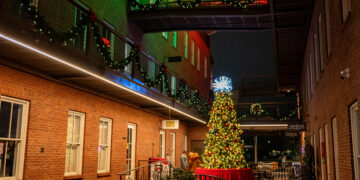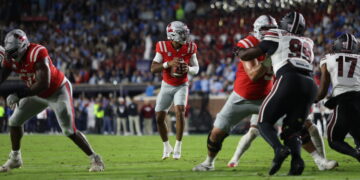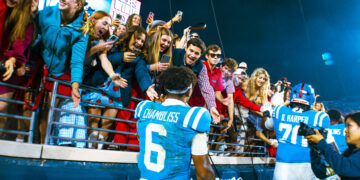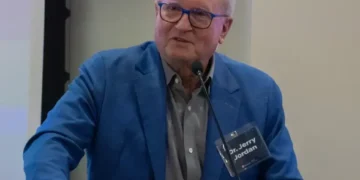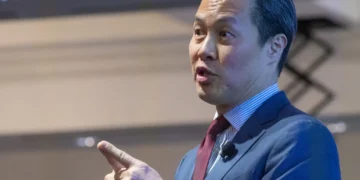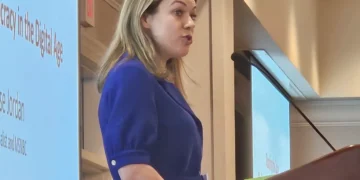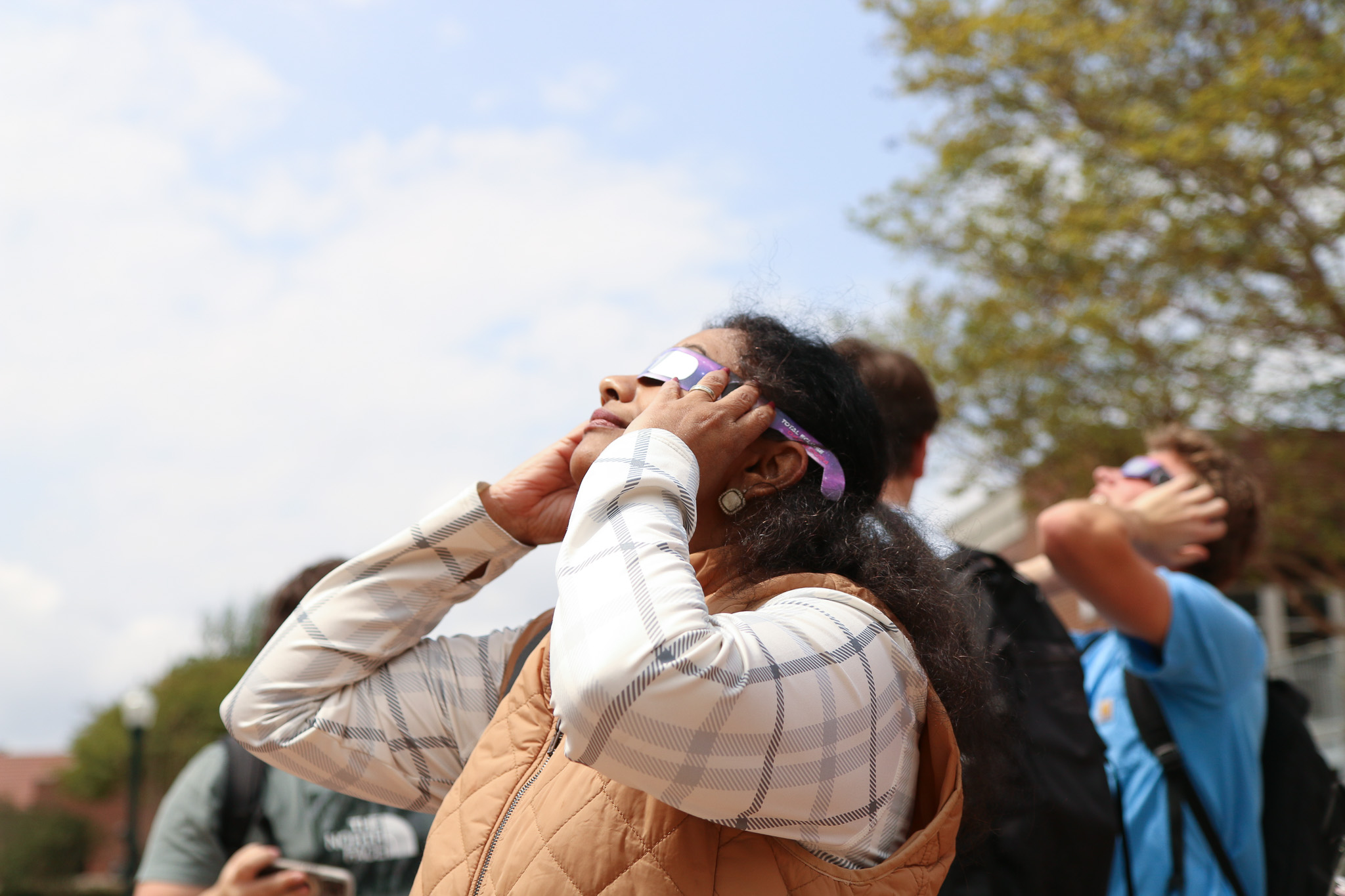
University of Mississippi students donned glasses and gazed into the sky with the hopes of capturing a glimpse of the solar eclipse on Monday, April 8.
Although Oxford did not have a view of the total solar eclipse (at peak totality, only 94.59% of the sun was covered) people still gathered in droves around campus to witness the phenomenon. The next solar eclipse in the contiguous 48 states will occur on Aug. 12, 2045 — 21 years from now.
For many, the event brought a sense of community.
“I enjoyed helping out the Society of Physics Students and the Department of Physics and Astronomy and seeing the reactions people had when seeing the eclipse for the first time,” senior physics major Bryce Barrett said. “I’m also happy to have helped others prepare for the eclipse by sharing my previous experience with one. As outreach coordinator, I helped the Society of Physics Students pass out eclipse glasses, flyers with viewing tips and information about eclipses and moon pies for anyone who wanted to see the eclipse.”
Eclipse glasses were a particularly hot commodity on Monday — looking directly at the eclipse with bare eyes could cause retinal burns, otherwise known as solar retinopathy, and in rare cases, it can lead to blindness.
Barret explained how the glasses protect people’s eyes.
“It’s very important that anyone looking directly at the sun wear the eclipse glasses. They have a special solar filter,” Barret said. “Unfiltered sunlight can damage your eyes, even with regular sunglasses. It’s worth noting that this applies with normal sunlight too, not just during an eclipse.”
Lydia Noah, a sophomore public health and health sciences major, echoed Barrett’s excitement and heeded his advice.
“I was so excited,” Noah said. “I promised my grandmother that I wasn’t going to look up into the sky, but I was so excited I actually looked up and I saw a spark. I hurried up and put my eyes down, but I was like, ‘Oh my gosh, I hope I’m not blind.’”
Fortunately, Noah was okay.
“I was so happy to find out I could see after I took my nap that day,” Noah said.
Freshman general business major Carson Sklenka agreed with Noah.
“I thought it was great. It was super cool to see,” Sklenka said. “I got my glasses, so it was a good time.”
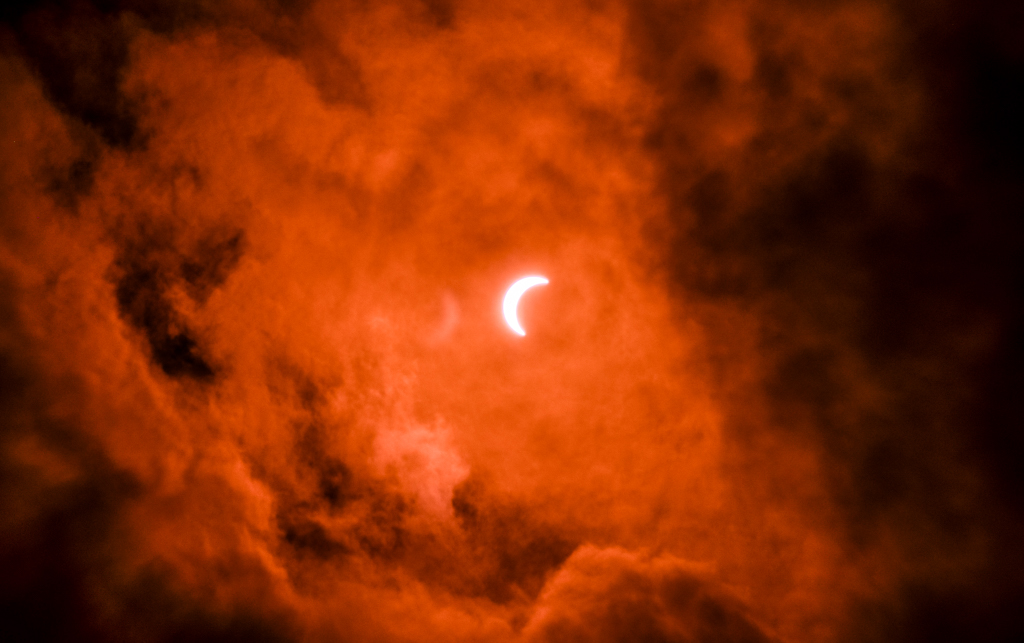
For sophomore accounting major Connor Wilbur, the eclipse was underwhelming.
“I wasn’t expecting a huge thing, but I did expect the sky to darken more than it did. The dark cloudy sky didn’t help as it made the sky naturally darker and made it hard to know what was due to the eclipse and what was the weather.”
Like Noah and Sklenka, junior economics and finance double major Braxton Allen found community in the event but agreed with Wilbur that the eclipse itself was underwhelming.
“It was a communal event, but I was underwhelmed,” Allen said. “The media hype made it seem as though the eclipse would have a greater effect on the sun’s ability to shine light, but I understand we were not in full totality.”
In spite of the cloudy weather, the event still carried special importance.
“The way people reacted back in 2017 is exactly like what happened here on Monday,” Barret said. “Watching people react in unison to a phenomenon like an eclipse is almost as amazing to see as the phenomenon itself, and this is the kind of thing that reinforces my passion for physics.”
See the video below for a special look at Eclipse Day at the University of Mississippi.

